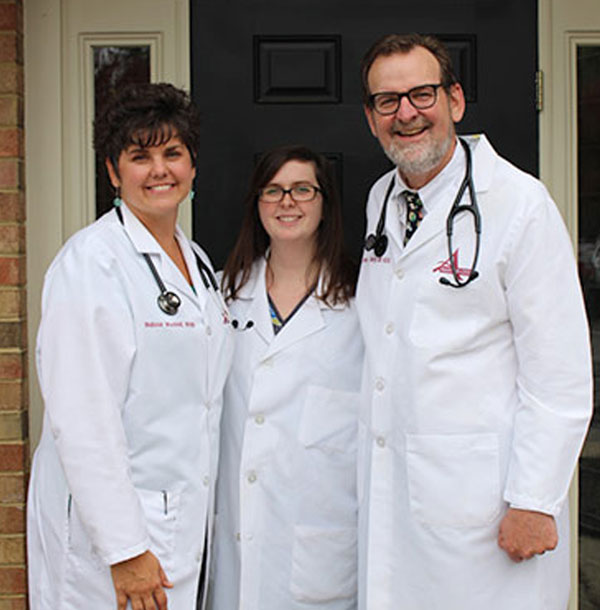What is a hysteroscopy?
A hysteroscopy is a procedure for looking at the inside of your uterus with a thin, flexible, lighted tube. The tube is called a hysteroscope. This helps diagnose and treat infection or abnormalities within the genital tract.
Examples of alternative procedures that may be used to diagnose or treat problems in the uterus are:
- an ultrasound scan, which is an exam with high-frequency sound waves
- D&C (dilation and curettage), which is a procedure for opening the cervix and then scraping or suctioning tissue from the uterus.
- a special type of x-ray, such as a hysterosalpingogram (putting dye into the uterus so it can be seen on an x-ray film)
- endometrial biopsy (the insertion of a tiny tube through the vagina and into the uterus to remove a sample of the inner layer of the uterine wall)
- removal of the uterus (hysterectomy)
- choosing not to have treatment.
How do I prepare for a hysteroscopy?
This procedure is typically performed at the Surgery Center as an outpatient procedure. You will have general anesthesia that will cause you to be in a deep sleep so you do not feel any pain. Allow for time to rest and try to find other people to help you with your day-to-day duties.
Smokers heal more slowly after surgery. They are also more likely to have breathing problems during surgery. For this reason, if you are a smoker, you should quit at least 2 weeks before the procedure. It is best to quit 6 to 8 weeks before surgery. Also, your body will heal much better if you do not smoke after the surgery.
You may eat a light meal, such as soup or salad, the night before the procedure. Do not eat or drink anything after midnight or the morning before the procedure. Do not even drink coffee, tea, or water.

What happens during the procedure?
You will be given a general anesthetic before the procedure to keep you from feeling pain.
During the procedure, the bladder is drained and Dr. Hardy will gradually stretch open (dilate) your cervix which opens into the uterus. He will guide a hysteroscope into your vagina, through the cervix, and into your uterus. Gas or fluid may be released through the scope to inflate your uterus. A video monitor is often used at the same time. This helps him see the uterus better. If necessary, Dr. Hardy may use a small laser or other tool to remove or get a sample of abnormal tissue which will be sent to the lab for further evaluation
What happens after the procedure?
After the procedure, you may stay at the surgery center for a short time. In some cases you will need to stay overnight. After the procedure you may:
- feel sleepy or groggy from the anesthetic
- have some cramps
- have trouble urinating the first few hours after the procedure
- have a watery or bloody discharge for 3 or 4 weeks.
What are the benefits of this procedure?
This procedure can be used to evaluate and treat abnormal uterine bleeding, retrieve a missing IUD string, test for causes of infertility, assess reasons for multiple miscarriages, identify and remove uterine polyps, fibroids or adhesions, help with staging of cancer, placement of Essure device for tubal sterilization and check for congenital malformations.
What are the risks associated with this procedure?
A hysteroscopy is a very safe procedure and rarely has complications. Possible complications may include:
- an allergic reaction to the drug used in this type of anesthesia
- injury to the uterus, bladder, or intestines
- excessive bleeding
- pelvic infection
- an allergic reaction to the fluid used during the procedure
When should I call the office?
Call your provider right away if:
- You start to bleed a lot (like a menstrual period).
- You develop a fever over 100°F (37.8°C).
- You have a lot of pain in your lower abdomen.
- You have a vaginal discharge with a bad odor.

